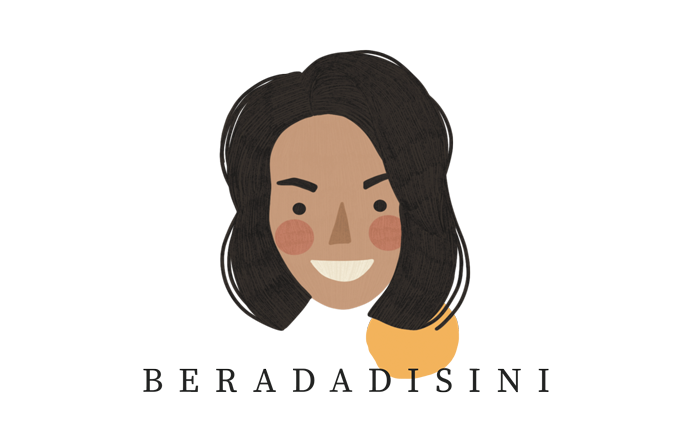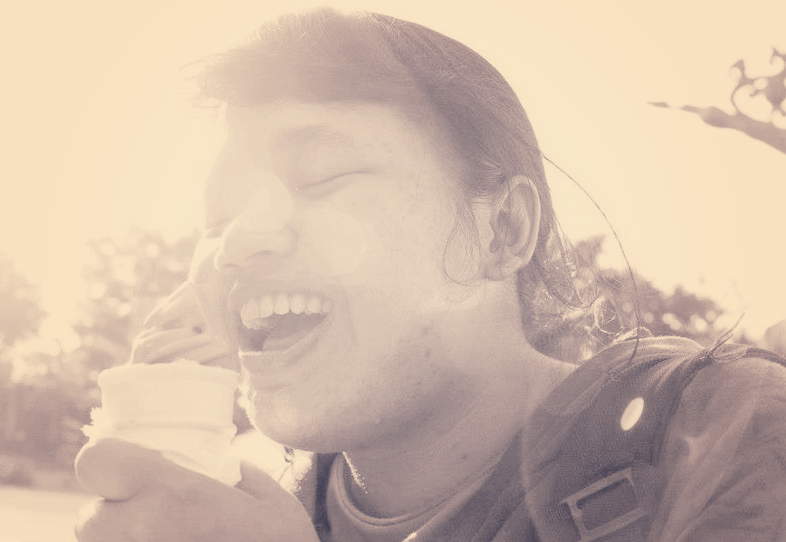It happens. There are things we might lose during our traveling journeys–no matter how carefully we guard them all the time, no matter how cautious we are. There will always be something that slips through the cracks, they say. And just like everything else in life, when you lose something so dear to you, there’s this certain feeling of sadness and helplessness that envelopes you for quite some time. However, losing things (especially on your traveling journeys) could also provide a series of valuable life-lessons that may (surprisingly) release us from having to carry too many things in our lives. These are 6 things you might lose on your traveling journeys and what they taught you about living life.
1. Lose Yourself.
When you’re traveling alone to faraway places, where nobody knows you–suddenly, you feel that euphoric feeling of freedom hits you, really hard. At last, you are free from other people’s preconceived judgments about you! You are free to simply be you–you are free to do whatever you like.
You are free to lock yourself in your fancy hotel room and enjoying their clean and sparkly pool until your skin smells of chlorine, instead of walking under the vicious sun to the public beach. You are free to roam around the city until 3 a.m. with a bunch of guys from faraway countries you met at the hostel’s common room, bar-hopping in a country where people don’t really speak that much English. You are free to sneak your way into a wooden house by the paddy field–where people wear loose robes, beads, and crystals on their forehead, chanting mantras and swaying their bodies with their eyes closed, laughing and crying and screaming–and you’re watching them, asking yourself whether you’re supposed to laugh, cry, and scream as well. You are free to end up in a couch with a guy you have only known for 2 days, watching movies on his laptop before ending up kissing each other passionately.
Nobody knows. It’s your secret. As you’re losing yourself during your traveling journeys, you get a chance to know who you really are–no parents to tell you what not to do, no colleagues darting uncomfortable look your way, no friends asking you to do something you are not really into. You’re free to simply being you.
This will be your chance to see both your brightest side, as well as your darkest side. You will truly know how far you can–or want to go. You will know and set your own values, and rules. You will find out about your true boundaries–things you wouldn’t do even when nobody’s watching. You’ll know what you really expect from yourself, as a person; what truly makes you proud, and what disappoints you. You’ll have that opportunity to make the greatest mistake or write the greatest story of your life–and you’ll understand how important it is to live your life for yourself. Because in the end, it is your life. And it’s so tiring to keep on living it based on other people’s expectations upon how you should live yours.
2. Lose Your Belongings.
No matter how good you are in guarding your belongings, this will happen one day–that’s just the way it is. The airline somehow misplaces your luggage and it is on its way to Africa instead of Europe. Someone steals your wallet–and you do not have that much money left on your savings account. You forget about how you put your handphone on the grass next to your picnic towel when you leave the park empty-handed. The key to your hostel room is missing. Your laptop bag is–(or maybe now it isn’t) stranded inside a toilet booth somewhere downtown.
After being swept by a sickening wave of panic, unleashing your anger to the whole world, cursing yourself (and your stupidity), wailing uncontrollably, and pulling your hair out to try to get your belongings back–to no avail, you start to feel your frustration dissipates. And then, there’s this empty feeling in your heart–somewhat scary and somewhat promising, a certain feeling of knowing that you just have to accept the fact that you have lost your belongings, and that you need to continue living without them.
And then you start counting your blessings. You’re looking at what you have, and being grateful for that. You’re thinking about how you can use these things you have to survive–and moreover, to be able to still enjoy the remaining days of your journey. You need to be flexible. You need to change plans, be okay with that, and be okay with less. And suddenly, you realize that who you are is not defined by what you have; or do not have. That you can actually get by with what you have–or you will find a way to, as long as you’re willing to.
You start reaching out to people, swallowing your pride, admitting that you need help. You talk to a stranger, some locals, your hostel owner, your friends, your parents–telling them about your misfortunes and asking them if they would be kind enough to help you. That’s the moment when you know how grateful you are to have these wonderful people in your life.
3. Lose Your Way.
Would you tell me, please, which way I ought to go from here?”
“That depends a good deal on where you want to get to,” said the Cat.
“I don’t much care where –” said Alice.
“Then it doesn’t matter which way you go,” said the Cat.Alice’s Adventures in Wonderland is a novel by Lewis Carroll
Probably you’re too excited wandering around the city. Or you’re taking the wrong turns, hopping on to the wrong bus, or getting off at the wrong station. Probably you lose your map. Or you’re simply bad with directions, just like me. There will be times when you find yourselves lost (what an irony!) in a strange country. You are trying to trace your way back to where you were, but it seems like you keep on going around in circles–the cobblestone path and the colorful walls transform into a confusing maze with dead-ends here and there.
You can keep going around and around and try again, and again, and again, or you can head over to someone and ask for directions. That’s how it goes in life, too. Sometimes, you need someone else’s help to show you how to get somewhere. And when you’re about to ask for directions, the best is to know where you’re heading or where you want to go back to. Only then, the person can help to point you out to your desired direction. There are times in life when you’re kind of floating in the middle, not sure where you want to be, but not wanting to go back to where you were before, either. Rather than trying to go around and around in circles, seek help, and ask yourself: where do you really want to be in this life? And it’s always a relief to have a place you can always go back to, as well. A familiar place that you can always call: home.
photo credit: DC Ross via photopin cc
4. Lose Your Sense of Time.
You know those moments. When you lose your sense of time.
When you’re staying in a small town by the beach or a small hut in the mountains–those days when you have no plan whatsoever, no train to catch, no flight schedule to check, no boat waiting for you by the pier. You’re free to spend a day with yourself, doing nothing and everything at the same time. These are the days when you grab your favorite book, go to the beach and read all day long under the sun, dipping yourself in the sparkling sea when the heat becomes unbearable, having a nap with the sea breeze caressing your face. It’s one of those spontaneous days you spend with your local crush. A bunch of people with different nationalities you have just met at a local club. Your lover.
You have no idea about the time of the day. You wake up when you feel recharged. You eat when you feel hungry. You drink when you’re thirsty. You move your body when it feels stiff. You sip a beer when you feel like it. You let your senses tell you what you’re about to do instead of looking at your watch to follow a set of routines.
It’s one of those days when you go to a cooking class, learning how to make batik, taking a silversmith course… and you’re so immersed in absorbing these new lessons, enjoying each and every moment as you try to follow the instructions, giving 100% of your heart and mind into what you’re doing… and the next time you realize it, the time is up! Or it’s already sundown! You wonder, where does your time go? How come it goes away so fast?
These are the days when you’re enjoying life as it is. You’re enjoying what you do–or what you do not do. You’re enjoying the things you learn, the people you meet, the feeling you feel. Even when it seems like you’re ‘doing nothing’, you’re simply enjoying it. You’re not forcing things, you’re flowing genuinely and gracefully through it. They say the time you enjoy wasting is not wasted time. How wonderful it is if we can live our lives this way, every single day, appreciating and enjoying each moment that passes us by–knowing that no matter what we do (or do not do), we are living a life without regret.
5. Lose Your Prized Possession.
Maybe it’s a lucky charm. A favorite photograph of your late parents. A special scarf given to you by a lover. An old teddy bear. A memento from your most memorable trip. These are the things you bring with you wherever you go, like a security blanket. They may not be something precious for others–but they are things that are so precious and dear to your heart. They are your prized possessions. They carry memories from times you can’t go back to; faces from people that pull you in like gravity, nostalgia from a somewhat familiar smell and scent, and a sense of security.
But there are days when somehow, you lose it. Usually, you do not know how you lose it–because it’s something you have always guarded ever-so-cautiously, more than the rest of your belongings. It may take hours or days before panic creeps in, and you start looking for your prized possession–your heart thumping–only to realize that it’s gone. It’s nowhere to be found.
Losing your prized possession taught you about releasing your dependency on various things or circumstances outside of yourself. To know that no matter how careful you are, there are moments when things will fall apart. When you’re attaching yourself to something, you’re being dependent on it. You feel as if it makes you ‘complete’. Thus, subconsciously, you’re preparing yourself to be ‘incomplete’ when that something is taken away from you.
You can’t rely on things outside of yourself to make you feel better or happier. You can’t keep replaying old memories to make you feel loved or worthy. One day, there will be times when you just have to stand your ground on your own and face the reality; no matter how cold it is. Releasing yourself from dependency is knowing that you’re the only one who can transform that cold reality into a warm fuzzy place of your own.
6. Lose Someone.
It’s indeed the most painful. You can “lose” someone that doesn’t come with you on your journey in the first place, like a parent, a best friend, or a boyfriend: the people who stay where they are when you hop on yet another plane. They may not understand, why you need to keep going and moving around, and why you still have somewhere else to go to after all those traveling journeys you have done. They may feel like they can’t keep up with you; or that they need someone who stays–instead of someone who is constantly leaving.
You can lose someone on your journey, too. Saying goodbye to a local host that has become like a sister to you after a month. Waving to a fellow traveler you have grown to fall in love with–not knowing whether the two of you could ever see each other again. Or deciding to part ways with a boyfriend you’re traveling with–as the journey you’re embarking on uncovers various sides of your personalities that simply doesn’t serve both of you well anymore.
And you will lose someone. It’s bound to happen, and it’s inevitable. The people you’re closest with right now, yes, you will lose them as well eventually. It’s just a matter of how, when, and where. The people we meet are delivered into our paths to impart their wisdom and help us grow. There will be times when their ‘task’ is done and both of you need to move on.
As sad and depressing as it may sounds, the silver lining is that by knowing this, you will stop taking them for granted. You will stop waiting for the “right time” to say something to them, or to do something for them. You will be asking yourself why they are sent into your lives–and why you are sent into theirs, and as a result, being even more present and mindful when you’re interacting with them.
You will realize that whatever it is you have with them today, it is only temporary. Seize every moment and be real with your closest ones. Life is too short to be spent playing games–to postpone expressing your feelings and affections until you feel more secure or deserving; or to be spent competing for power and dominance. Whatever comes out of you, let it comes from a place called Love.










